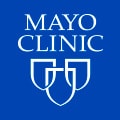It is possible to overdose on metformin hydrochloride, although it is relatively uncommon. Overdose symptoms may include hypoglycemia (low blood sugar), lactic acidosis (a buildup of lactic acid in the blood), and gastrointestinal problems. Metformin hydrochloride is typically taken orally by swallowing the tablet whole with a glass of water. It is important to follow the instructions provided by your healthcare professional or the medication's label. The dosage, frequency, and duration of treatment will depend on your specific condition and medical history, and these instructions should be strictly adhered to. In some cases, extended-release (ER) versions of metformin are available, which are formulated to slowly release the drug into your system over time. These tablets should be swallowed whole and should not be crushed, chewed, or cut. It is important to note that metformin should be taken with food or shortly after a meal to help minimize side effects like gastrointestinal upset.

www.mayoclinic.org
Bisoprolol is a medication used to treat high blood pressure and certain heart conditions. Taking too much of this medication can lead to an overdose and potentially harmful effects.
Symptoms of a bisoprolol overdose may include:
1. Slow heart rate (bradycardia)
2. Low blood pressure (hypotension)
3. Difficulty breathing or shortness of breath
4. Fainting or dizziness
5. Excessive fatigue or weakness
6. Bluish coloration of the fingers and toes (cyanosis)
Bisoprolol is typically taken orally in the form of a tablet, usually once daily. It is recommended to take bisoprolol with a glass of water to help swallow the tablet easily. You may take it with or without food, but try to take it at the same time each day for consistency.
Learn about the side effects, dosages, and interactions of prescription drugs, over-the-counter medicines, herbs, and supplements.

medlineplus.gov
It is also possible to overdose on naproxen sodium, which is the active ingredient in medication like Aleve. Taking more than the recommended dose can lead to an overdose, which can have serious consequences for your health. Symptoms of an overdose may include nausea, vomiting, stomach pain, drowsiness, headache, dizziness, confusion, seizures, and even loss of consciousness. Naproxen sodium is typically taken orally, with or without food. It is important to carefully follow the instructions provided by your healthcare provider or the instructions on the packaging. The dosage and frequency of taking naproxen sodium may vary depending on the specific condition being treated and individual factors. It is recommended to take naproxen sodium with a full glass of water and to avoid lying down for at least 10 minutes after taking it to help prevent stomach upset.
https://www.mayoclinic.org/drugs-supplements/naproxen-oral-route/proper-use/drg-20071887
WebMD's comprehensive database of prescription drug and medication information from A to Z

www.webmd.com
Ethinyl Estradiol and Norethindrone (Oral Contraceptives): learn about side effects, dosage, special precautions, and more on MedlinePlus

medlineplus.gov



